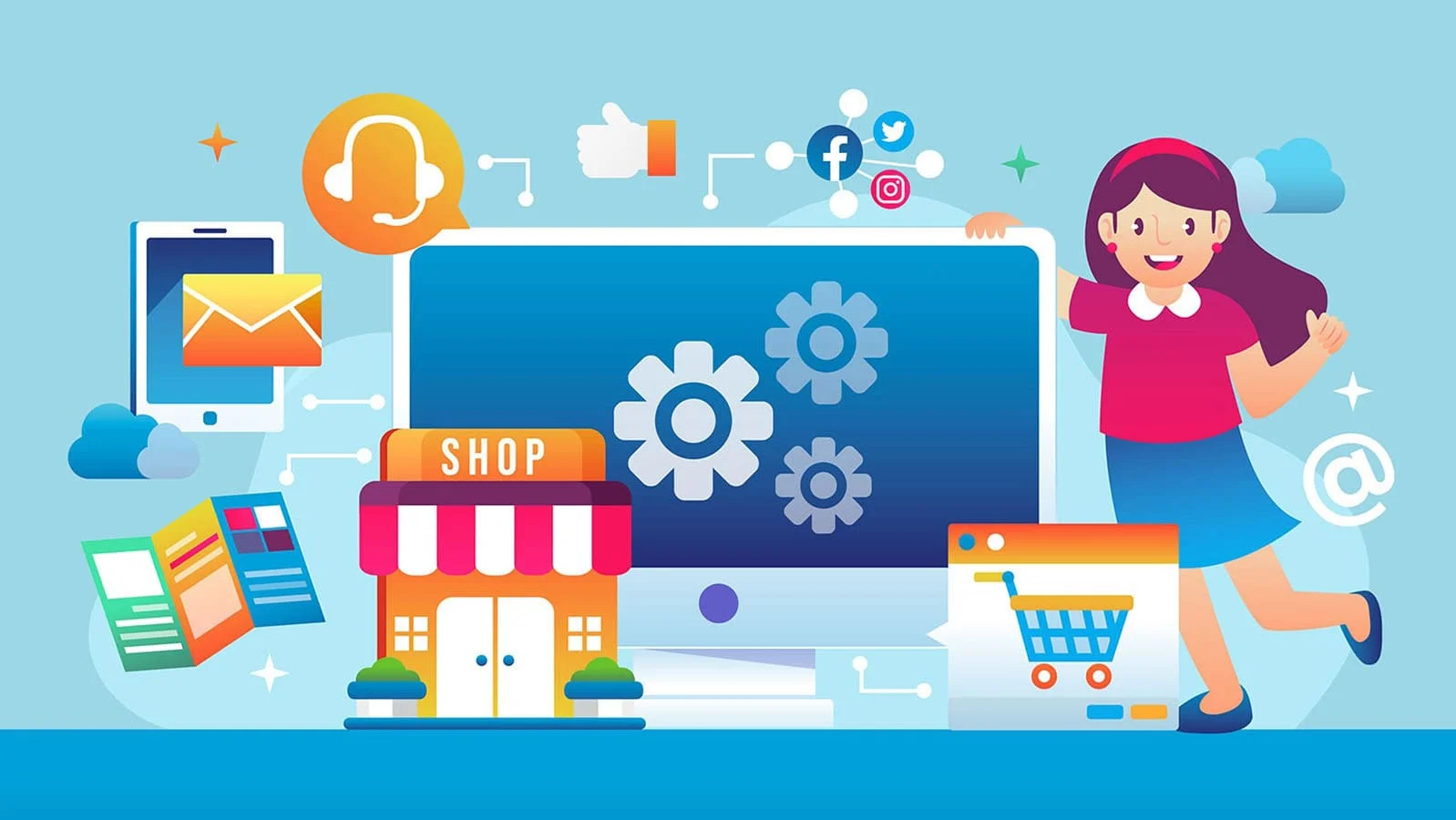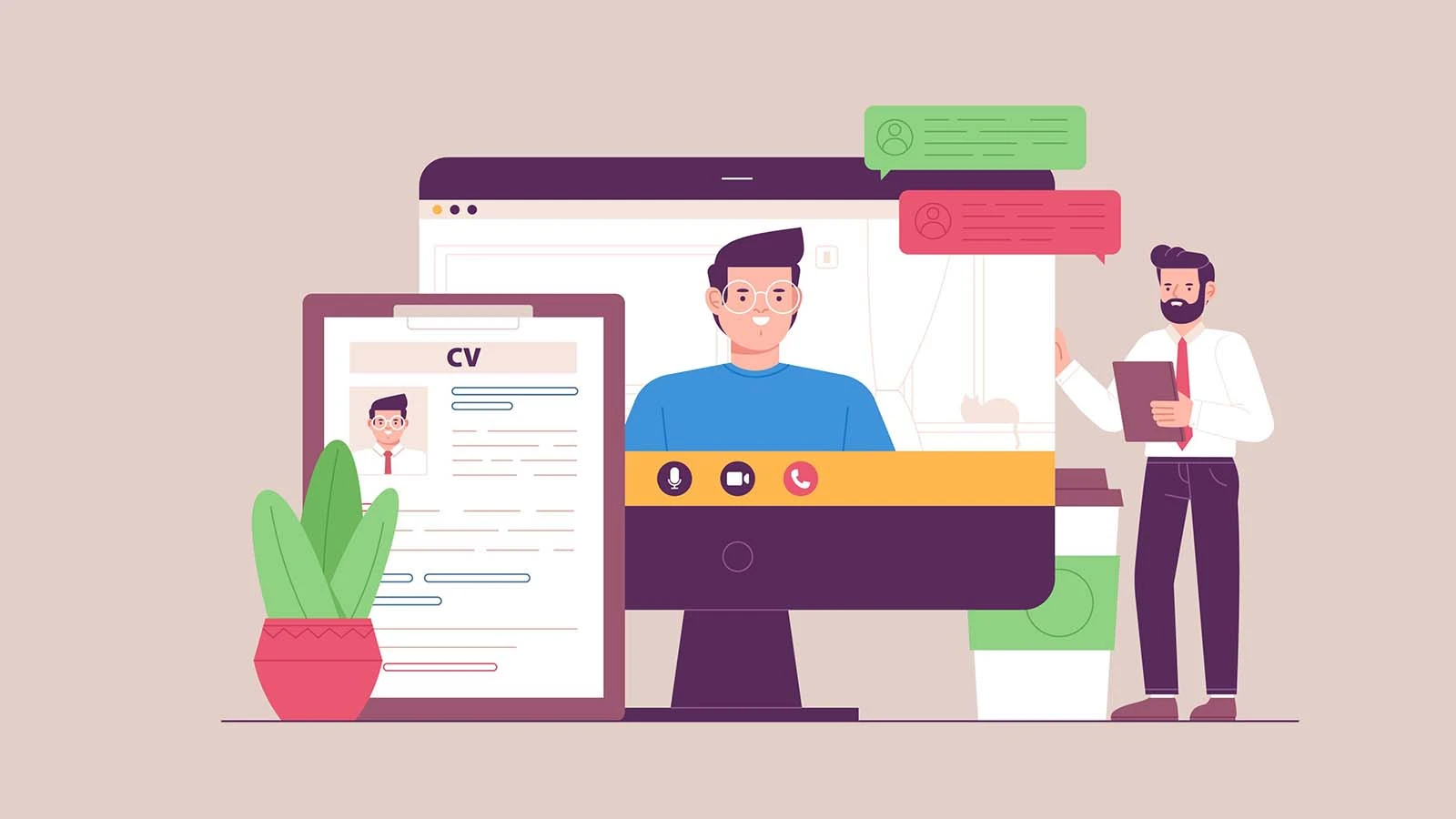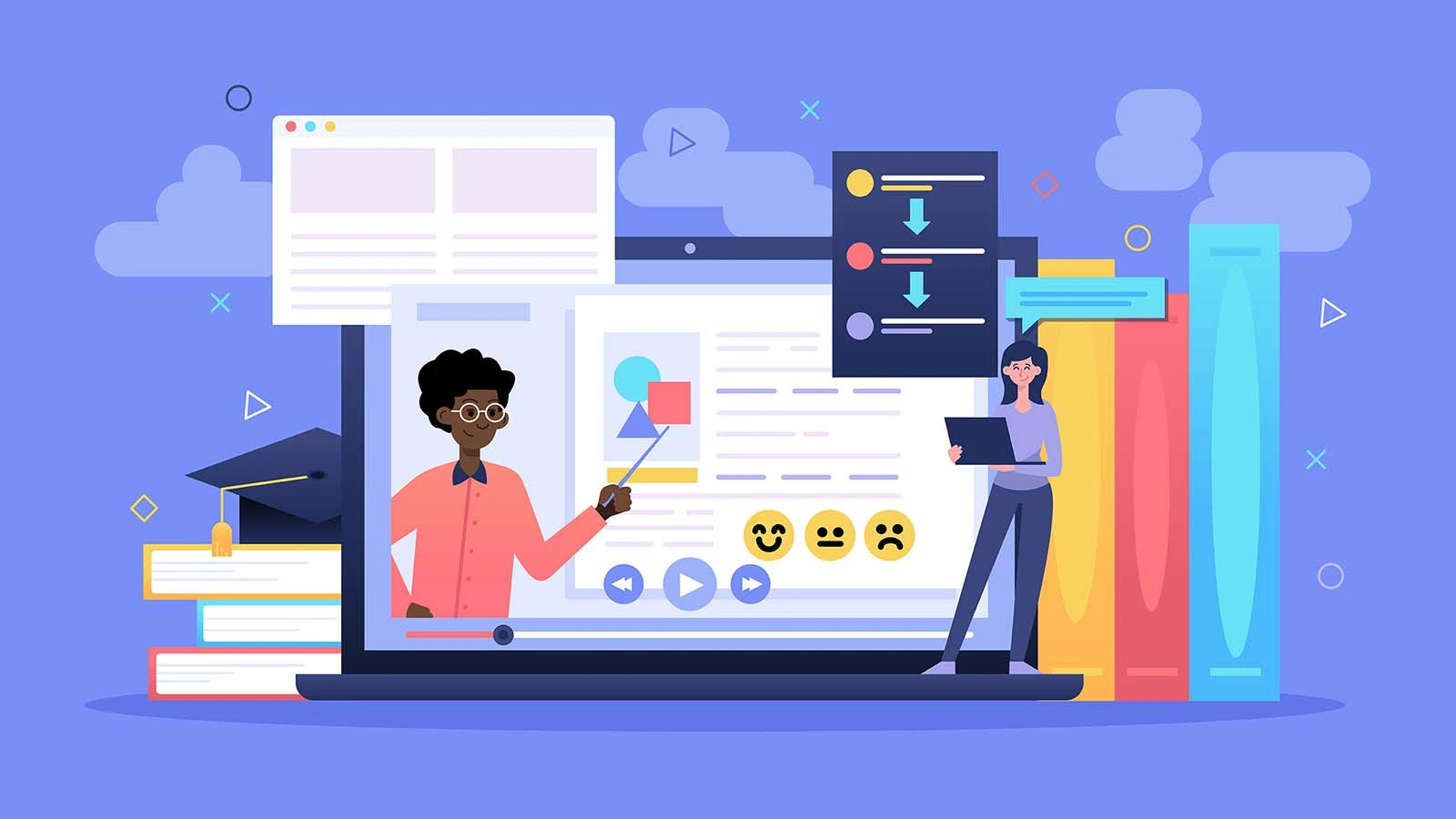The Importance of Retail Training in Today’s Market
Rohit Kumar
08 Feb, 2024

In today's rapidly evolving retail environment, the importance of thorough and effective training is paramount. The retail sector, characterized by its dynamic nature, demands that employees are not only well-versed in product knowledge but also skilled in customer engagement and sales techniques.
Comprehensive retail training plays a crucial role in this, as it directly impacts customer satisfaction and loyalty. When employees are adequately trained, they are more likely to be engaged and knowledgeable, which translates into better customer experiences. This, in turn, can lead to a significant reduction in employee turnover and an increase in sales, ultimately contributing to the overall success and sustainability of the business.
The challenges faced in the retail sector, such as high employee turnover and the need for consistent training across various locations, further underscore the need for innovative training solutions.
Traditional in-person training methods often fall short in addressing these challenges due to logistical constraints and the diverse needs of a geographically dispersed workforce. This is where eLearning comes into play, offering a flexible, scalable, and cost-effective solution.
e-Learning platforms enable retail businesses to deliver uniform training content, ensuring that all employees, regardless of their location or language, receive the same high-quality training. This consistency is vital for maintaining a uniform brand image and ensuring compliance with company policies and industry standards.
The advent of eLearning has revolutionized retail staff training, making it more accessible, engaging, and efficient. Digital courses can be designed to be interactive and engaging, leading to better retention of information and improved job performance.
Moreover, e-Learning modules can be easily updated to reflect the latest trends and product information, ensuring that the workforce is always equipped with current knowledge and skills.
The flexibility of e-Learning allows employees to access training modules at their convenience, enabling them to learn at their own pace and in their preferred environment. This adaptability not only enhances the learning experience but also accommodates the unique schedules and learning styles of retail employees, further contributing to the effectiveness of the training program.
Addressing the Unique Challenges of Retail
The retail sector is characterized by several distinct challenges that complicate the delivery of effective training programs:
-
High Employee Turnover: Retail businesses often experience a high rate of staff turnover. This constant change means that new employees frequently need to be brought up to speed, making ongoing training a necessity. The challenge lies in providing this training efficiently and effectively to a continually changing workforce.
-
Irregular Shifts: The nature of retail work often involves irregular and flexible shift patterns. This variability makes it difficult to organize traditional training sessions where all employees are present at the same time. As a result, finding a time that accommodates everyone's schedule for in-person training can be a significant logistical challenge.
-
Fast-Paced Industry: Retail is a dynamic and fast-paced sector. Trends change rapidly, new products are constantly introduced, and customer preferences evolve. This fast pace requires that employees are always up-to-date with the latest information, which in turn demands a training approach that can quickly adapt and update its content.
-
Diverse Skill Requirements: Retail employees need a broad range of skills. They must have in-depth knowledge of the products they are selling, be skilled in various customer service techniques, understand and apply sales strategies effectively, and be aware of and comply with industry-specific regulations and policies. Providing training that covers all these areas comprehensively is a complex task.
-
Logistical Challenges of In-Person Training: Traditional in-person training methods face logistical challenges in the retail sector. With stores and employees often spread across different locations, sometimes even internationally, delivering consistent training to everyone can be both difficult and costly. This is compounded by the need to update training materials regularly to keep pace with industry changes, which can be cumbersome and inefficient with traditional training methods.
In short, the unique challenges in the retail sector – high employee turnover, irregular shifts, a fast-paced environment, diverse skill requirements, and logistical difficulties with in-person training – necessitate a training approach that is both flexible and comprehensive. This approach must accommodate the varying schedules of employees, provide up-to-date information, and ensure consistency across all locations.
Innovative Training Strategies
To navigate these challenges, innovative training strategies are essential. The use of digital platforms and eLearning tools has opened new avenues for retail training. Here are some key strategies:
Quick Onboarding for Practical Tasks: The implementation of micro-learning modules for onboarding is a strategic approach to quickly integrate new hires into their roles. These modules, concise and focused, can cover essential aspects of the job, from basic operational procedures to company policies. This method ensures that new employees are not overwhelmed with information and can start contributing to the team more rapidly. Micro-learning is particularly effective in retail, where time is of the essence, and employees need to be on the floor, interacting with customers as soon as possible.
Scenario-Based Sales Training: This innovative training strategy immerses employees in realistic sales situations, enhancing their understanding of products and their application in real-life scenarios. By simulating customer interactions and common sales challenges, employees can practice and refine their sales techniques in a safe, controlled environment. This method is highly effective in building confidence and competence, as it prepares employees for the variety of situations they will encounter on the sales floor.
Tailored Learning Journeys: Recognizing the diversity in employees' backgrounds and experience levels, tailored learning journeys offer a personalized approach to training. Employees can select from a range of modules that cater to their specific needs, whether they are new to retail or seasoned professionals looking to update their skills. This customization ensures that each employee's learning path is relevant, engaging, and directly applicable to their role, thereby maximizing the effectiveness of the training program.
Point-of-Need Performance Support: In the fast-paced retail environment, employees often need immediate access to information. Point-of-need performance support, facilitated through mobile-friendly platforms, provides staff with instant access to crucial information, such as product details, inventory levels, or customer service protocols. This just-in-time approach ensures that employees can quickly find answers to customer queries, resolve issues on the spot, and maintain a high level of service without having to step away from their tasks.
In-Depth Process Training: Complex retail processes, such as inventory management, order processing, or customer relationship management, are broken down into manageable segments for more effective training. This approach allows employees to grasp each element of a process thoroughly before moving on to the next, ensuring a comprehensive understanding of the entire workflow. Such in-depth training is crucial for smooth operations and can significantly reduce errors and inefficiencies in the workplace.
Gamification of Product Knowledge: Transforming product knowledge training into a game-like experience makes learning more engaging and enjoyable. Interactive quizzes, challenges, and leaderboards can motivate employees to learn about products in a fun and competitive way. This method not only enhances the retention of product information but also encourages a team-building atmosphere among staff. Gamification is particularly effective in appealing to the diverse age groups typically found in retail settings, making learning accessible and appealing to all.
Core Competency's Tailored eLearning Solutions for the Modern Retail Landscape
At Core Competency, we understand that the retail environment is rapidly evolving, necessitating a training approach that is both dynamic and adaptable. Our suite of eLearning solutions is meticulously designed to meet these challenges head-on.
From customized micro-learning modules that facilitate rapid assimilation of knowledge to scenario-based training programs that simulate real-world retail environments, our offerings are tailored to enhance the skills and capabilities of retail employees.
We also recognize the diversity within retail teams and offer tailored learning paths to cater to varying experience levels and roles. With the integration of mobile-friendly performance support and comprehensive process training, we ensure that retail staff are equipped with the necessary tools and knowledge to excel in their roles.
Our solutions are not just about imparting knowledge; they're about fostering a culture of excellence and innovation in the retail sector. Let's delve into our Core Competency Solutions to understand how they address the specific needs of the retail sector:
Customized Micro-Learning Modules:
-
These are short, focused training segments created to quickly impart knowledge.
-
Ideal for onboarding new employees, they provide essential information without overwhelming them.
-
They are also perfect for updating existing staff on new products, policies, or procedures.
-
The concise nature of these modules allows for quick assimilation and application of the learned material in real-world scenarios.
Scenario-Based Training Programs:
-
These programs simulate real retail environments to provide practical training experiences.
-
Employees are placed in virtual scenarios that mimic typical customer interactions or sales situations.
-
This method enhances employees' sales and customer service skills by allowing them to practice and refine their responses in a controlled setting.
-
It helps in building confidence and competence in handling various customer-facing situations.
Tailored Learning Paths:
-
Recognizing the diversity in roles and experience levels within a retail team, these learning paths are personalized.
-
Training modules are developed to cater specifically to the unique requirements of different team members.
-
This approach ensures that each employee receives relevant and effective training, enhancing their skills in a way that directly benefits their specific role.
Mobile-Friendly Performance Support:
-
In today’s mobile-centric world, having access to training and support resources on mobile devices is crucial.
-
This feature ensures that employees can access important information and training material anytime and anywhere, right from their smartphones or tablets.
-
It's particularly useful for retail staff who are often on the move and need quick access to information to assist customers effectively.
Comprehensive Process Training:
-
Retail processes can often be complex and multifaceted. This solution breaks down these processes into smaller, more manageable training segments.
-
It facilitates a deeper understanding of each element of a process, ensuring that employees grasp the full scope of their tasks and responsibilities.
-
This comprehensive approach to process training is crucial for smooth operations and helps in reducing errors and improving efficiency.
By partnering with Core Competency, retail businesses can ensure that their training programs are not only effective and engaging but also aligned with the latest industry trends and technologies.
Our solutions are designed to enhance the learning experience, accommodate diverse learning styles, and ultimately contribute to the success and growth of your retail business.
Assessment of Behavioural Core Competencies
For example, students struggling with a particular concept could be provided with additional resources or assigned to a different module via the e-learning and learning management system.
Read Blog




